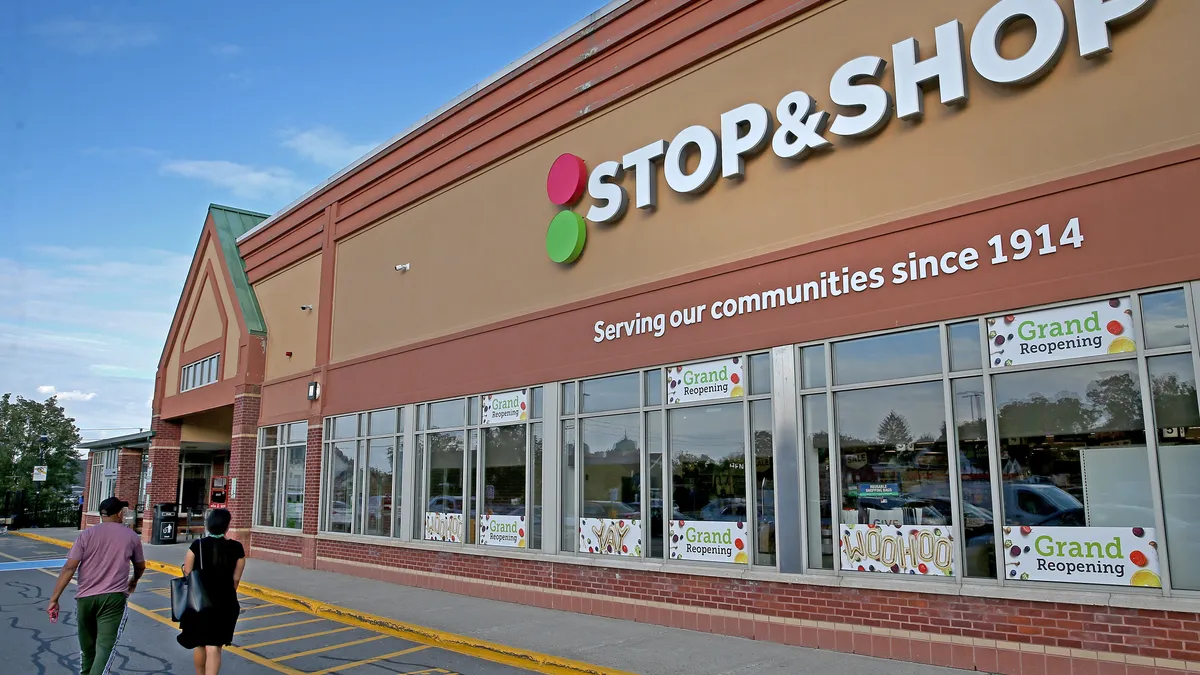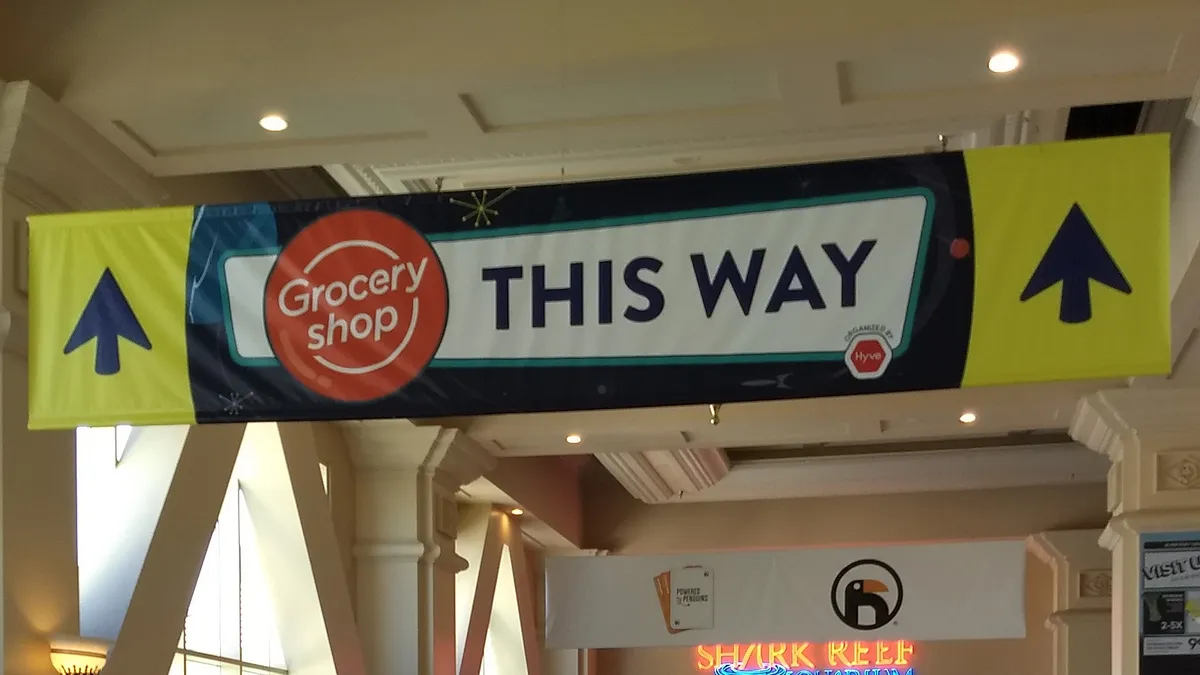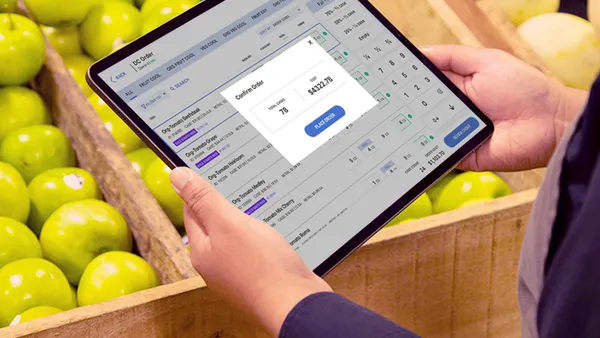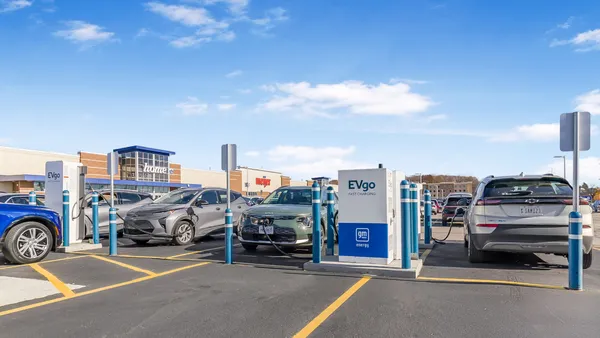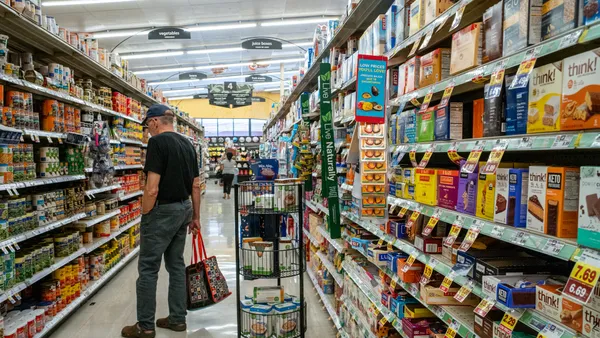Dive Brief:
- Walmart and organics recycler Denali have installed technology for “depackaging” food waste in the back of more than 1,400 Walmart stores and Sam’s Clubs, Walmart U.S. Vice President of Facility Services RJ Zanes wrote in a company post on Monday.
- With the solution, workers toss expired items into a receptacle and then Denali’s technology separates the food from the packaging material.
- Called Zero Depack, Walmart said the “depackaging” program is boosting workers’ efficiency while supporting the retailer’s long-term sustainability objectives.
Dive Insight:
Zero Depack is helping to keep expired food out of the waste stream and instead repurpose the food, such as turning it into a nutrient-rich product for farmers, Walmart said.
“In order to recycle unsalable packaged foods, the food must first be depackaged,” Zanes wrote. “In the past, this was a time-consuming process, requiring associates to manually remove perishable food products — including produce and meats — from their packaging.”
Denali says the machines can separate as much as 97% of trash from organic food waste, Zanes wrote. A single Denali truck collected organic waste weighing 11 tons from 18 different Walmart stores on a trip to an organic waste recycling facility.
Last fall, Walmart said its partnership Denali will provide the retailer with food waste recycling at all of its U.S. locations.
The U.S. generated roughly 77.6 million tons of food waste in 2022, according to ReFed data cited by Zanes.
Walmart’s sustainability targets include halving operational food waste by 2030 against a 2016 baseline. In its fiscal year 2023, Walmart reduced food waste by 12%, according to a company report.






